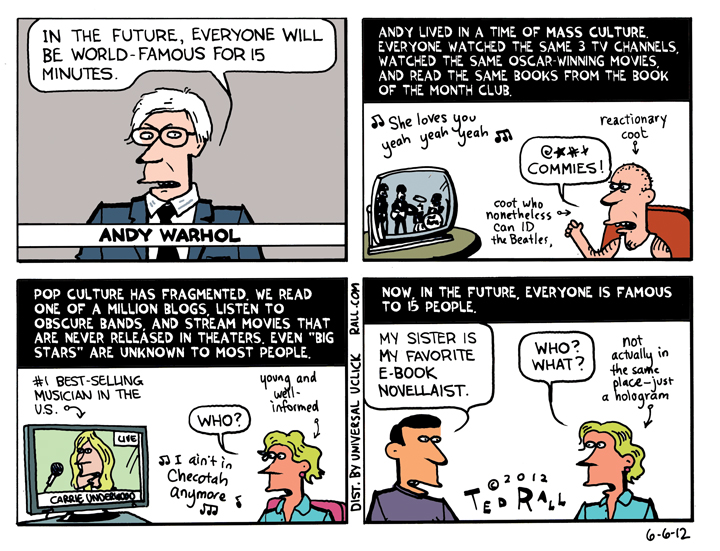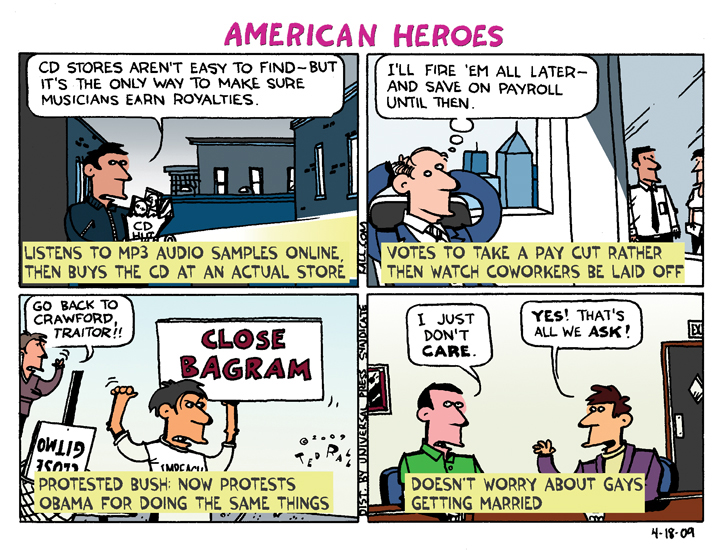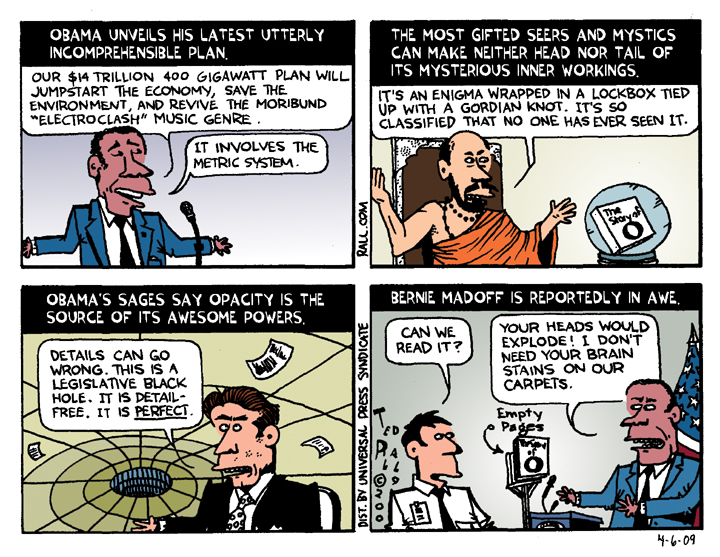
Overplaying is a crime.
It is as tragic and as wrong as the contempt that lovers sometimes allow to transform their partner from an object of passion into a monster whom they behold only with scorn.
As a tween I couldn’t get enough of the Beatles; now I can’t run fast enough from any speaker spewing their music. What changed? Not Ringo plus those three other lads — if anything, they sound cleaner and crackle-pop-free and remastered through the sound equipment I can afford as a middle-aged adult. Objectively, they’re still a great band.
It’s all me.
Mostly to blame are countless DJs and their corporate masters at the hundreds of radio stations I’ve heard play the Beatles thousands of times. Add the breathless hype with which every unearthing of an alternative version of a lost demo is greeted — there was a reason those versions weren’t originally released.
As with chocolate and water and everything except sex, repetition begins as obsessive joy and ultimately turns everything sour.
But I’m guilty too. When I discovered the Beatles, I played them over and over until I knew every note and every word. As I did when I found out about Blondie. Did the same thing to the Ramones. And the Dead Kennedys. And Barcelona. And Ganymede.
But it’s different with the Beatles. You can overplay a song or a band without dead-ing them to yourself. I still feel happy when I hear the Ramones.
Overplaying is a zillion times worse when someone else does it to you. Free will is what makes it different. There’s a big gap between self-indulgence and — there’s no better word — torture carried out by others.
I have suffered two epic episodes of Being Overplayed To.
The first took place Thanksgiving weekend of 1982, when I was a sophomore at Columbia. Most students went home to their families; since I was a broke scholarship kid, I stayed at school. I shared a two-bedroom one-bathroom suite with an Israeli guy who, before he took off Wednesday afternoon, left a 45-rpm single of Dexy’s Midnight Runners’ “Come On Eileen” on auto-repeat. He locked his door, and left.
My solidarity with the oppressed people of Palestine was never fiercer.
As though it happened yesterday and hot oil were dripping on my eyes, I recall every note and every word of that accursed song as though it were Thanksgiving 1982 all over again: “Come on Eileen / Oh, I swear what he means / At this moment you mean everything / You in that dress / My thoughts I confess / Verge on dirty / Oh, come on Eileen.”
Objectively a great song. A great song that makes me want to die.
I made it all night Wednesday, all day Thursday and all night Thursday. By Friday morning, having heard “Come On Eileen” more than 600 times (“Come on Eileen / Oh, I swear what he means”), a crazy idea presented itself. There was no other way: I climbed down to the steam tunnels beneath the building, found the circuit breakers for my dorm, killed the power for a minute, and turned it back on again.
Song over. Years of recovery began.
A second, worse musical trauma was vested upon me by two roommates during the summer of 1984. We were fans of, among other things, the British pub rockers Dave Edmunds and Nick Lowe. So when Lowe — to the extent that he is known in the States, people may recall “Cruel to be Kind,” and the Elvis Costello track “(What’s So Funny About) Peace, Love and Understanding” was originally his) released the most raucous LP of his career, “Nick Lowe and His Cowboy Outfit,” it was occasion for celebration at our various short-term sublets.
Unfortunately for me, I was the only one in the apartment with a job. The lion’s share of celebrating therefore fell to Dan and Chris, who stayed up until three or four in the morning, drinking and smoking and blasting Lowe’s Tex-Mex-meets-?-and-the-Mysterians apocalypse “Half a Boy and Half a Man” you guessed it, over and over.
Rarely if ever did we they ever make it to side one, track three, “Maureen,” a paean to a “skinny little hill of beans.” Another objectively great song.
Dan and Chris had an understanding. I would go through the motions of going to sleep at midnight, setting the alarm for six am. Dan and Chris would blare “Half a Boy and Half a Man” for an hour. I’d go out and yell at them. They’d turn it down. Ten minutes later, back to full volume.
This was our life.
Over the last three decades, I have continued to hold the work of Nick Lowe dear. I have replaced my vinyl LPs with CDs. I have seen him live. I have even tolerated Lowe’s current, late-period, slow (i.e. dull) lounge period. But there was one LP I never replaced. One CD I never bought. The thought of hearing “Half a Boy and Half a Man” again triggered the same feeling as reading one of those Facebook messages from an ex-girlfriend who wonders if you’re divorced yet, as though you had broken up by accident.
Until a few weeks ago. I was at Amoeba Records, the best music store in the U.S. There it was: a used copy of “Cowboy Outfit” for $24.99. (It’s out of print and hard to find.)
I hesitated. Was I ready? Finally, I decided that this was one of those existential “what kind of person am I?” dilemmas. Am I someone stuck in the past, who allows the traumas of the first Reagan Administration to scar me for life? Or someone ready to move on?
I bought the CD.
It sat on my stereo cabinet. Then, last night, I put it on.
Damn it’s good.
(Support independent journalism and political commentary. Subscribe to Ted Rall at Beacon.)
COPYRIGHT 2014 TED RALL, DISTRIBUTED BY CREATORS.COM



